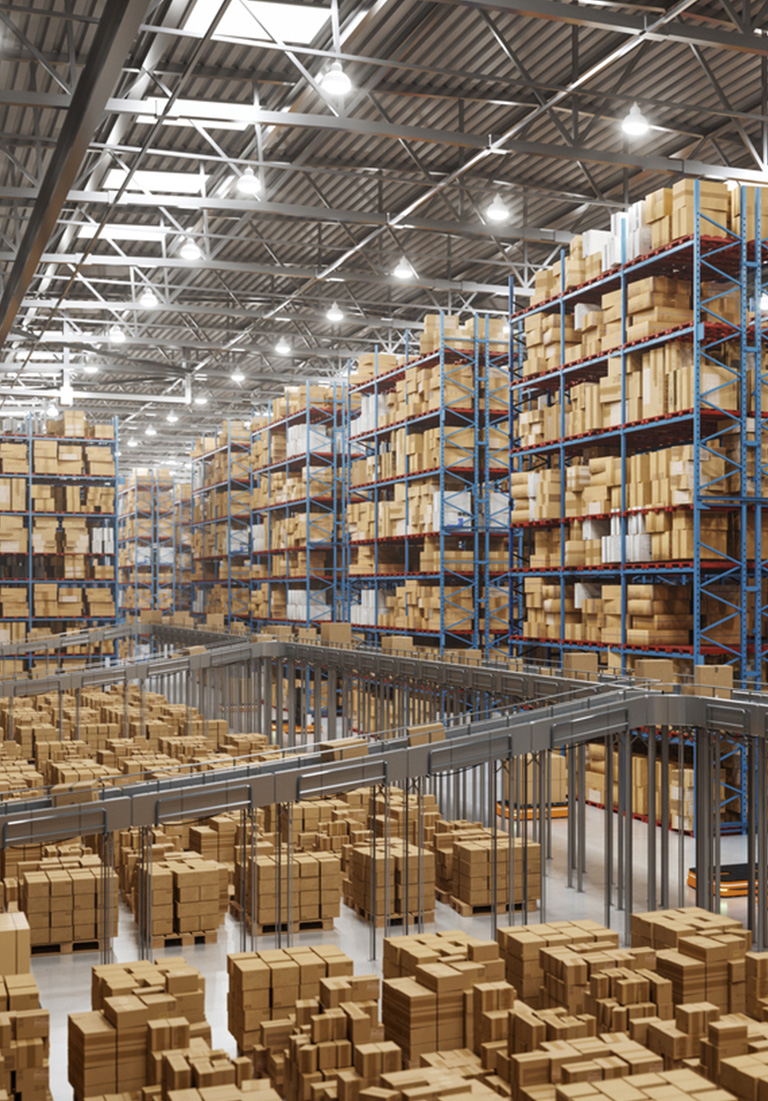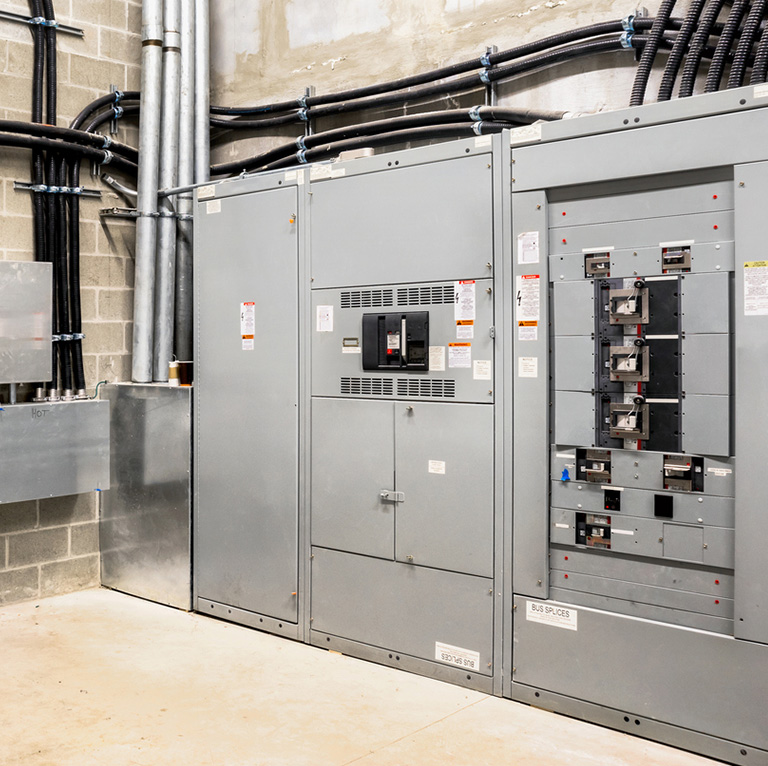
What is the Difference Between Commercial & Industrial Electrical Systems?
Commercial and industrial electrical systems serve different types of facilities and equipment. The differences affect everything from system layout to voltage, load, and installation method. Our team designs and installs both systems based on site type, usage, and code requirements.
Commercial electrical systems are used in office buildings, retail spaces, and public facilities. These systems typically rely on single-phase or split-phase power, which supports lighting, outlets, and standard equipment. Wiring is often run through conduit, drop ceilings, or walls and may be connected to centralized lighting controls, outlets, and panelboards.
Industrial electrical systems are installed in warehouses, manufacturing plants, and distribution centers. These systems use three-phase power, which supports high-demand machinery, motors, and process controls. Installations often require larger conduit, overhead busways, machine feeds, and complex distribution setups based on production layout and workflow.
Both system types must meet NEC and local code requirements, but the design approach is different. Commercial work focuses on visibility, access, and general-purpose usage, while industrial projects are built for heavy loads, equipment spacing, and continuous operation.
Industrial Electrical Services FAQs
Industrial electrical systems require careful planning around equipment loads, control systems, and distribution layout. Below are common questions we receive from plant managers, warehouse supervisors, and construction teams across Birmingham.
Industrial systems are used in buildings that operate heavy machinery or equipment with high power demand. These include warehouses, manufacturing plants, logistics hubs, and food processing facilities.
Each facility type requires different layouts and system sizes. Some use overhead busways for flexibility, while others rely on fixed conduit runs to support permanent machines and production lines.
Installations may include:
- Branch Circuit Wiring: Feeds for equipment, motors, and control panels.
- Conduit Systems: Rigid, EMT, or underground conduit installed based on layout and clearance.
- Distribution Panels: Main panels and subpanels configured to match 3-phase equipment loads.
- Lighting Systems: Interior and exterior lighting designed for coverage and efficiency.
- Transformer Setup: Step-down or isolation transformers placed based on voltage needs.
All services are coordinated with other trades and installed to meet NEC and local code.
Industrial wiring is designed for high loads, frequent starts, and long run times. Most systems use three-phase power, large conduit sizes, and heavier conductors to carry high amperage.
Commercial wiring typically supports lighting, outlets, and standard building systems. Industrial systems must account for vibration, clearance, and mechanical movement, which affect material selection and routing.

Schedule Your Industrial Electrical Installation
We provide industrial electrical services across Birmingham and the surrounding areas. Projects often involve large equipment feeds, three-phase system layouts, or high-capacity panels that require careful planning. Our team works with plant managers, general contractors, and facility leads to complete installations without delays or rework.
Every system is reviewed in advance to confirm layout, conduit paths, load requirements, and code compliance. Contact us to request a quote, schedule a site visit, or review your upcoming project.

